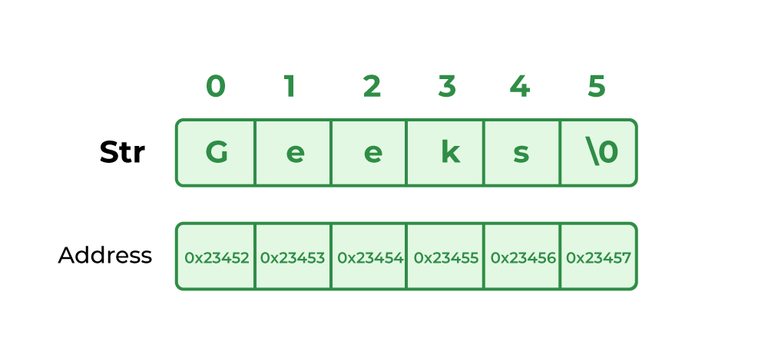What Is Immutable Strings and Exactly How It Works
In the world of programming, understanding the idea of immutable strings is paramount for producing durable and safe applications. Immutable strings refer to strings that can not be modified after they are created, guaranteeing data integrity and predictability within the code.
The Essentials of Immutable Strings
Unalterable strings, as a basic idea in programming, are personality sequences that can not be transformed as soon as they are created. This means that as soon as a string is assigned a worth, that worth can not be changed. In languages like Python and Java, strings are immutable things, causing various ramifications in terms of memory management and information integrity.
Among the vital advantages of immutable strings is that they provide a feeling of safety and security in information manipulation. Because the web content of an unalterable string can not be customized, it makes sure that the initial data continues to be undamaged, reducing the danger of unintended modifications throughout program execution (Why are strings immutable in Java?). This residential or commercial property likewise simplifies debugging procedures, as designers can rely on that when a string is defined, its worth will certainly not be inadvertently altered
Additionally, unalterable strings help with efficient memory usage. When a new string is produced based on an existing one, instead of changing the initial string, the new worth is stored separately. This technique enhances performance by lowering memory fragmentation and simplifying memory allotment processes. Overall, recognizing the basics of immutable strings is important for grasping programs ideas and enhancing code performance.
Advantages of Unalterable Strings
Structure upon the security and efficiency advantages of immutable strings, their advantages reach enhancing code dependability and simplifying simultaneous shows tasks. By being unalterable, strings can not be modified after development, which removes the threat of unexpected adjustments in the information they store. This inherent immutability makes certain that when a string is developed, its worth stays constant throughout the program's execution, lowering the possibilities of bugs caused by unanticipated changes.
In addition, immutable strings add to code dependability by making it easier to reason regarding the state of a program. Since strings can not be altered, designers can trust that a string will constantly hold the exact same value, simplifying debugging and upkeep efforts. This predictability causes more steady and reputable codebases.

Execution in Shows Languages
Within numerous programming languages, the incorporation of unalterable strings is a fundamental aspect that influences how data is taken care of and controlled within code structures. The execution of unalterable strings varies across various shows languages, with each language providing its very own systems to support this concept.

On the other hand, languages like C and C++ do not have built-in assistance for immutable strings. Designers in these languages must by hand implement immutability by enforcing regulations within their code to avoid direct adjustments to string objects.
Ideal Practices for Collaborating With Immutable Strings
When handling unalterable strings in programming languages like Java and Python, adhering to finest methods guarantees secure and effective data adjustment. One of the essential ideal practices is to use StringBuilder or StringBuffer rather of straight manipulating strings, especially when taking care of extensive concatenation operations. These courses offer mutable options for string manipulation, assisting to stay clear of unnecessary memory appropriations and enhancing efficiency.
Furthermore, when working with delicate information such as passwords or API secrets, it is critical to stay clear of keeping them as plain text in unalterable strings. Using protected storage mechanisms like char varieties view it or specialized libraries for managing sensitive information helps reduce protection risks connected with immutable strings.
Real-world Applications and Instances
Checking out practical implementations of immutable strings in different industries discloses their considerable impact on data integrity and system integrity. In the medical care market, immutable strings play an important duty in ensuring the safety and confidentiality of client information. By stopping unauthorized adjustments to sensitive details such as clinical records and prescriptions, immutable strings aid Discover More preserve compliance with stringent personal privacy laws like HIPAA.
Monetary institutions likewise take advantage of the immutable nature of strings to improve the safety and security of client information and transaction records. Unalterable strings assist prevent fraudulence and unauthorized alterations to economic information, offering a durable defense versus cyber threats and making certain the count on and self-confidence of clients.
Verdict
Ideal practices for functioning with unalterable strings include preventing straight adjustments and using methods that return brand-new string objects. Real-world applications of immutable strings include information encryption, caching, and string control jobs.
Immutable strings refer to strings that can not be changed after they are developed, making sure data honesty and predictability within the code. When a brand-new string is produced based on an existing one, rather than modifying the original string, the new value is stored separately.In languages like Java and Python, strings are immutable by default, suggesting that as soon as a string things is developed, its worth can not be changed - Why are strings immutable in Java?. Best practices for working find more with immutable strings include preventing direct adjustments and making use of approaches that return brand-new string things. Real-world applications of immutable strings include data file encryption, caching, and string adjustment jobs